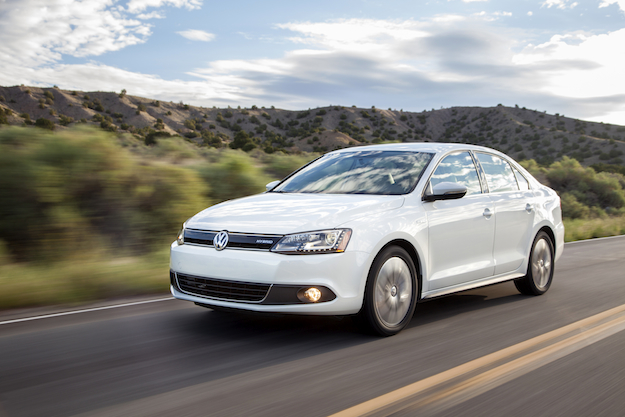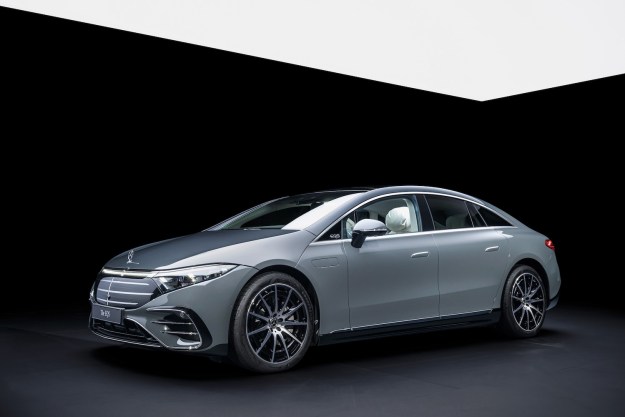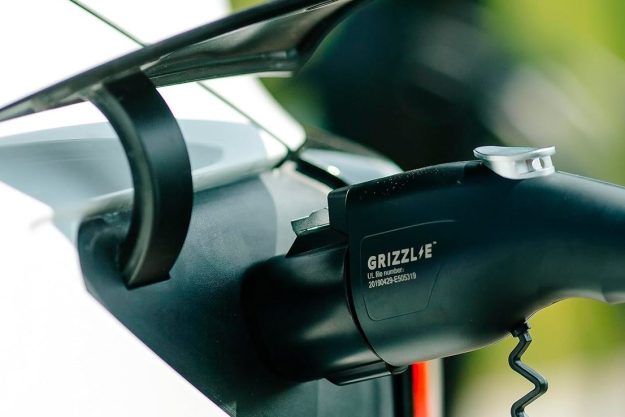
Automakers realized shorty after the Toyota Prius debuted that new car buyers want to buy their new cars from an automaker that sells a hybrid model. They don’t necessarily want the hybrid themselves – hybrid sales only make up around five percent of total yearly US new car sales – they actually want the turbo model. Buyers simply enjoy knowing that the automaker, from which they’ve purchased a vehicle, cares enough about the planet to build and sell a hybrid.
Enter the 2013 Volkswagen Jetta Hybrid. Complete with a turbo, it’s the best of both worlds.
As the second hybrid that VW has offered (the first being the 2011 Touareg Hybrid), the Jetta Hybrid has a lot of impressive competitors to go against. Featuring a 1.4-liter turbocharged TSI gasoline engine, a seven-speed DSG automatic transmission, and an electric motor/generator wired up to a lithium-ion battery pack, the Jetta Hybrid puts a new, sporty spin on the traditional four-door hybrid.
While the turbocharged engine is small and efficient, it still produces 143 horsepower. The compact motor/generator, which is powered by a 60-cell battery pack, adds 27 horsepower to the system for a net output of 170 horses.
Capable of reaching 60 mph from a dead standstill in eight seconds, the Jetta Hybrid stands as one of the quickest hybrids on the market (the Prius does it in 10 seconds) and is capable of an electronically limited 125 mph. The Jetta Hybrid’s impressive stats don’t end there. The Jetta Hybrid is capable of a combined 45 mpg and starts at a base price of $24,995. So it won’t blow your budget at the dealer or at the gas pump.
On the exterior, the Jetta Hybrid doesn’t look much different than the standard Jetta; at least to the untrained eye. VW has re-sculpted the front fascia and rear bumper, giving the Jetta Hybrid a drag co-efficient of 0.30. Distinguishing it further from the rest of the Jetta line are distinctive “Hybrid” badges, which have been accented with blue in reference to VW’s “Think Blue” mentality.
Available in four trim levels (Turbo Hybrid, Turbo Hybrid SE, Turbo Hybrid SEL, Turbo Hybrid SEL Premium) the interior of the Jetta Hybrid will surely impress. VW realizes hybrid drivers love the advanced technology under the hood as well as advanced tech in the cabin. VW has included in the Jetta Hybrid an Eco gauge in the instrument cluster, a digital readout next to the speedo that displays several different vehicle information screens, and a touchscreen in the center stack that works as a hybrid drive information module, an advanced stereo, and a navigation display. To say the 2013 Jetta Hybrid is tech savvy would be an understatement.
Connecting the distinctive drivetrain to the sleek and modern interior is a small black button behind the shifter that reads “E Mode.” Press that, and from a standstill, the Jetta Hybrid is capable of driving 2.1 miles and up to 44 MPH in electric or “EV” mode. Leave E Mode disengaged and the Jetta Hybrid can maintain EV mode up to 37 MPH, provided the driver works the throttle pedal gingerly.
The turbocharged hybrid drivetrain of the 2013 Jetta Hybrid is impressive, and not just on paper.
Typical hybrids tout fuel economy as their shining achievement, often the expense of drivability. Hybrids are anemic on power, lumpy while delivering that power, and generally have the handling characteristics of say, a manatee or the space station. The Jetta Hybrid, is none of these things. We had worried VW might have Prius-ized the Jetta. Thankfully, it hasn’t.
VW had been derided for cheapening the base model Jetta and replacing its great-handling multi-link rear suspension with a less expensive – and far worse handling – setup. Only on the GLI model did the new Jetta retain the suspension components of the outgoing version. Delightfully, the Jetta Hybrid, too, has been fitted with the multi-link, independent rear suspension. And you can tell. In corners, the Jetta Hybrid is confident and sure-footed.
Off the line in a typical hybrid, regardless of the rate of acceleration, the switch between EV mode and the firing up of the gas engine is a lumpy and generally unpleasant affair. No automaker had worked out a way to make the transition of power a smooth one. That is, until the Jetta Hybrid. Just like its competitors, the gas engine in the Jetta Hybrid shuts off at stop lights, but unless you’re paying attention (and sometimes even when you are) you wouldn’t notice it. Then when it kicks back on, it’s just as seamless. The jarring start and stop of the gasoline engine having been one of our major complaints with hybrids, we were pleased to see it negated.
Leave the DSG transmission in the standard “D” drive mode, and it’s peppy without being wasteful. Come off the throttle for any amount of time and the system disconnects the gas engine from the transmission. This disconnection allows for decreased powertrain drag and — as the precisely translated German video that VW showed us bragged — “the Jetta Hybrid coasts!” It coasts so well in fact, it feels like the Jetta is unencumbered by wind resistance at all.
For drivers who wish to maximize all 170 horsepower, simply pop the shifter into Sport and allow the engine and transmission to make full use of the turbocharger. Be forewarned, if you’re expecting a big power gain from Sport mode, you’ll be disappointed. For a hybrid, though, Sport is quite a chuckle.
It’s safe to say the Jetta Hybrid is a winner. The subtle good looks of the standard Jetta haven’t been sullied by aerodynamic re-sculpting. The interior, too, remains quite nice and has been given some choice tech toys underneath the soft-touch dash. The fuel economy and performance are both outstanding. And starting at $24,995 and ranging up to $31,180, the price point is pretty good.
The problem lies, however, with that price point. Yes, compared to other hybrids on the market, it’s competitive. But just like the VW diesel offerings, the premium for those alternative drivetrains is substantial. We figure the price difference between a comparably equipped gasoline Jetta and a Diesel Jetta is around $2,300. With gas and diesel prices as they currently stand, customers will be looking at a staggering 80,000-mile break-even point. Meaning, you’d have to drive your diesel-powered Jetta for 80,000 miles before you’d save enough money to make up for the increased sticker price. Sure, on the road you’re getting better fuel economy, but are you really ready to wait the six or so years before those savings pay for themselves and you can begin actually saving?
The Hybrid is much the same story: a higher premium at the dealer for savings at the pump. When confronted about this, a German VW rep addressed it brilliantly. He said, “Buyers are purchasing diesels and hybrids for how they feel when they get to drive past the pump and when they see the high fuel economy figures on their vehicle computer.” And he’s right.
So if you’re interested in having one of the best looking, best handling, and quickest hybrid on the market, while also being able to pass up the pump once in a while, go for the Jetta Hybrid. If you simply want to save on gas, get a Ford Fiesta.


